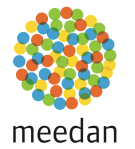Listening Comprehension:
Hoover & Tunmer (1993) in Cross (1999: 21) define listening comprehension process as a measure of "one's ability to understand something". This measurement is gained by having the listener "answer questions (orally) about the content of a narrative passage presented orally". Owca et al (2003: 20) also confirm that listening comprehension includes responding to and interacting with the speaker quite frequently. Gruba, P. (1997: 336-337) defines listening comprehension as an active process in which listeners select and interpret information which comes from auditory and visual cues in order to define what is going on and what the speakers are trying to express. Ulper, H. (2009: p. 568) has defined listening comprehension as a complex process in which a person should be mentally active: in order to differentiate the words, stress, intonation and grammatical structure of listeners; to constitute meaningful combinations by making classifications or combinations; to fill in the gaps logically by using background knowledge; to keep in mind and evaluate what has been listened to and to construct meaning. While Kultu, O. and Aslanoglu, A. (2009: p. 2013, and Yalcınkaya. F. et al (2009: 1137) define listening comprehension as a process of one individual perceiving another via sense, (specifically aural) organs, assigning a meaning to the message and comprehending it. So, it is not sufficient for us to hear our counterparts, but it is also necessary to understand them, to think about what they should say, and thus to be an effective listener.
Thus, listening comprehension involves mutual interaction between the listener and the source of the oral passage (a tape, a teacher, a computerized sound, or even any person in the street). The listener should concentrate on what is being said and develop his short- term memory to be able to answer any question related to the orally produced passage afterwards. It is an active process in which the listener uses his lingual abilities and background information to interpret and follow what is presented in the aural material



